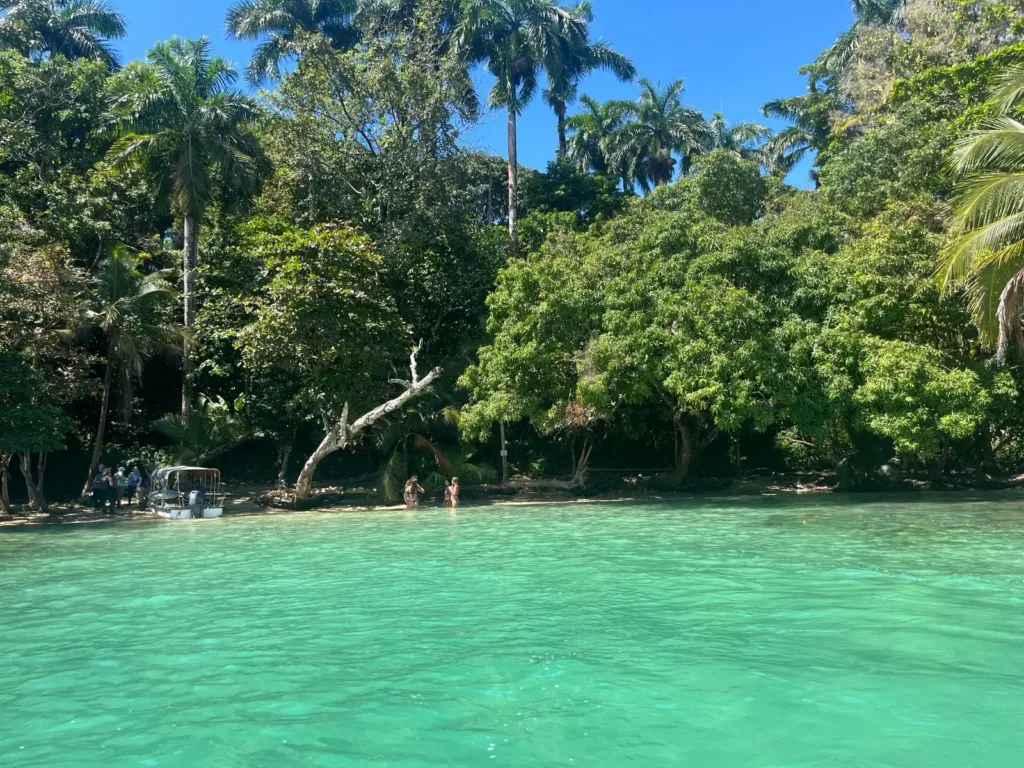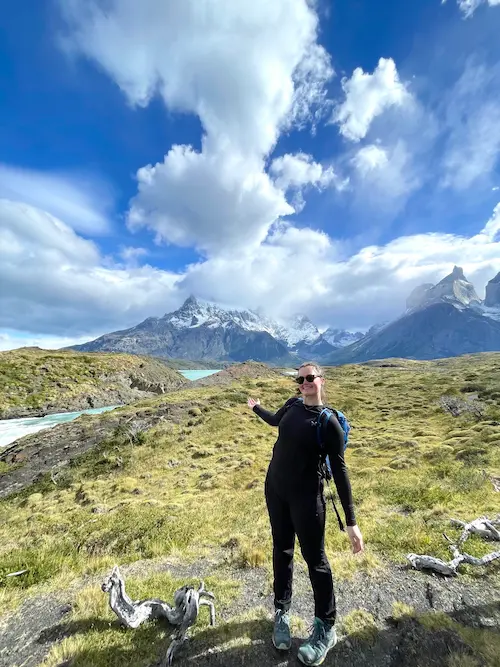Weekend Away Homestay
I embraced the opportunity to stay in a Ngobe community for our weekend away because I wanted to get a closer look into the life of an indigenous family, learn by experience, and completely immerse myself in the culture and language (Spanish). Like most decisions, I started to have second thoughts right before my departure, not sure if I was making the right choice with my two free days. However, as soon as I entered my homestay family’s home, I knew I made the right decision.
Two other students, Hannah and Elisa, and I stayed with Rotillio Milton, a Ngobe man who gives tours as a living. He picked us up from Bocas town and drove us in his boat to his home on Isla Bastimentos. The entrance to his home looked like an enchanted ride in Disney World except that it was in real life. We rode in though a waterway enclosed with mangroves, up to a wooden dock, where we proceeded to walk across stones until we reached Rotillio’s home.
The house was a wooden frame on stilts and to the naked eye did not look like much, but once we were inside, we saw that it was quite spacious. It had a kitchen, bathroom, guest room (where we would stay), and three bedrooms for the family. Rotillio introduced us to his wife, his 19-year-old niece, and 17-year-old grandson, all of whom lived with him. They were very welcoming and seemed excited to meet us, however, we only had time to put our bags down before we were off to do activities.
First, his grandson, Jovani, brought us to their neighbor’s local chocolate farm and hotel, La Loma Jungle Lodge. La Loma was absolutely beautiful! They had artisan stone paths and acres of tropical rainforest where they let the chocolate trees grow unharvested. On a tour with some of the guests staying at La Loma, we learned about the process from the fruits on cacao trees to the chocolate bars we eat. At the end of our tour, we ground our own chocolate and got to keep the chocolate we made. We talked with the owners for a while, who were ecstatic to have us as guests. They gave us homemade cholate cookies, and even a chocolate tea made from the raw cacao produced on their farm.
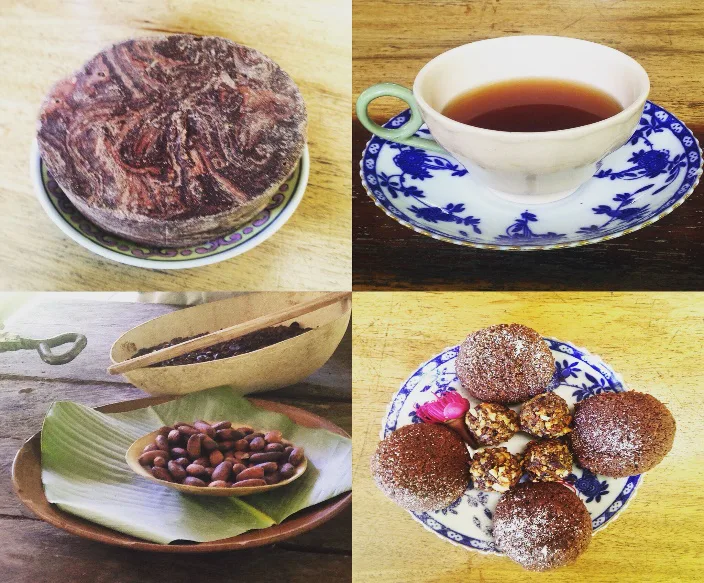
On the way back to the house we came across Jovani’s cousin and they asked if we wanted to take a detour to find “la piscina” or the pool, nestled in the rain orest. We agreed and followed them on a hike. Once we reached “la piscina,” we saw children jumping into the water and swimming around. I thought it was amazing that the Ngobe people know the forest so well that they could find home from almost every point in it.
At the house, Rotillio’s wife prepared us a lunch of rice, lentils, salad and papaya. After lunch we talked with the family and played with Rotillio’s younger grandchildren who came to visit. Then Rotillio took us out on the boat to go fishing. He explained that he uses multiple methods to fish including with a spear, and a net, but this time we were going to use a line. We got the chance to put bait on line and hold it in the ocean as Rotillio drove the boat. After about an hour, we finally caught a fish! It was a schoolmaster snapper (a species we learned about in class) and we fried him up and ate him later on.
That night we ate dinner, sat and talked with the family, and played games with the younger children. We used headlamps because they did not have electricity. It was nice to unplug and just sit in a circle and talk to people. By the end of the night I felt like we had really connected.
The next morning, we woke up, brushed our teeth with clean bowls of water, bathed in the river, and ate a breakfast of scrambled eggs, jonny cakes—local coconut bread—and sweet fried plantains. Then, we got ready for a morning hike. We put on hiking boots and walked all the way up to the peak of the forest (Rotillio’s backyard) with Jovani and their two dogs. The whole time Rotillio continuously stopped to point out different types of plants and animals. After the hike back down, we ate lunch, and then everyone piled into the boat to head over to the elementary school. At the school, Rotillio’s wife showed us some of the hand crafts that women in the Nobe community learn to make, such as jewelry and bags. We also got to see the children’s classrooms and playground.
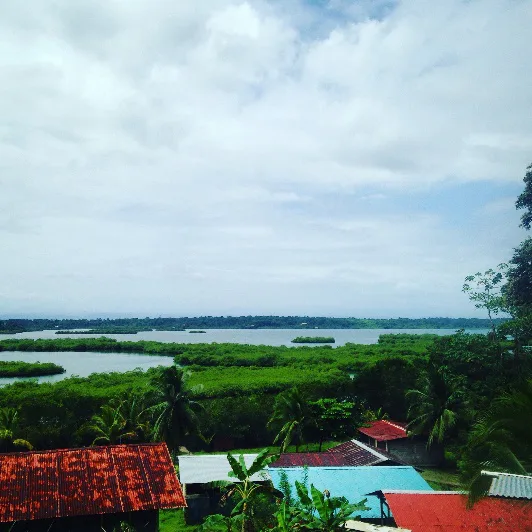
Finally, it was time to go. We gave everyone a hug goodbye and thanked them for their hospitality. It was kind of sad leaving because though it was a short time, I really enjoyed staying with the family and I felt like I connected with them well. Overall, I had an amazing weekend away; I would definitely recommend it to a friend.
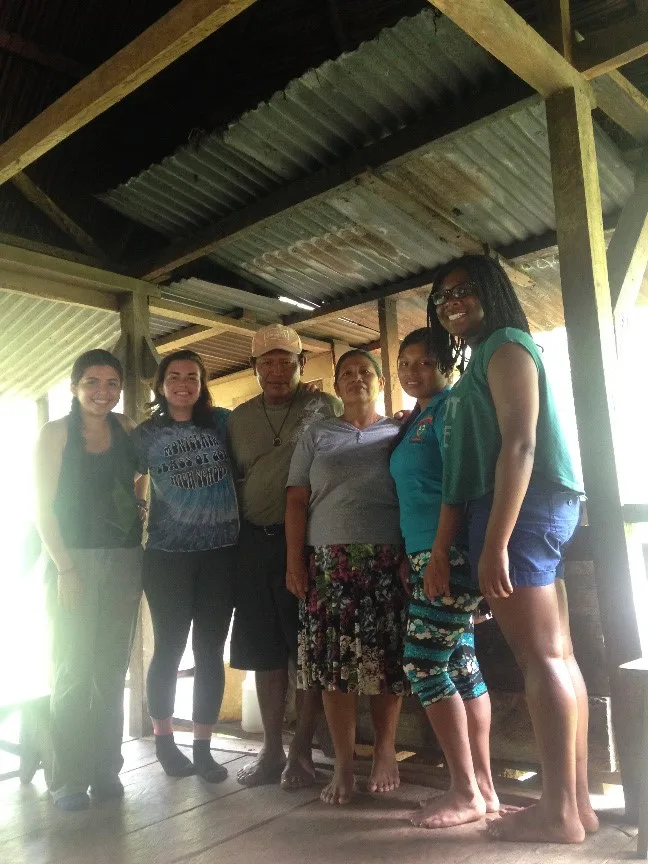
From Left: Elisa, Hannah, Rotillio, Rotillio’s wife, niece and me.
→ Tropical Island Biodiversity Studies Semester Program in Panama
Related Posts

